- Home
- slideshows
- miscellaneous
- How Reformation won over 'cool girls' by filling a void left by H&M and Forever 21
How Reformation won over 'cool girls' by filling a void left by H&M and Forever 21
While Reformation does most of its business online — an estimated 80% of its revenue comes from e-commerce — the brand has worked to ensure its physical stores are as eco-friendly as possible.

Reformation has 14 physical retail store locations, which expanded from its first locations in Los Angeles and New York City to include shops in Miami, Austin, Boston, and Washington, DC, among others.
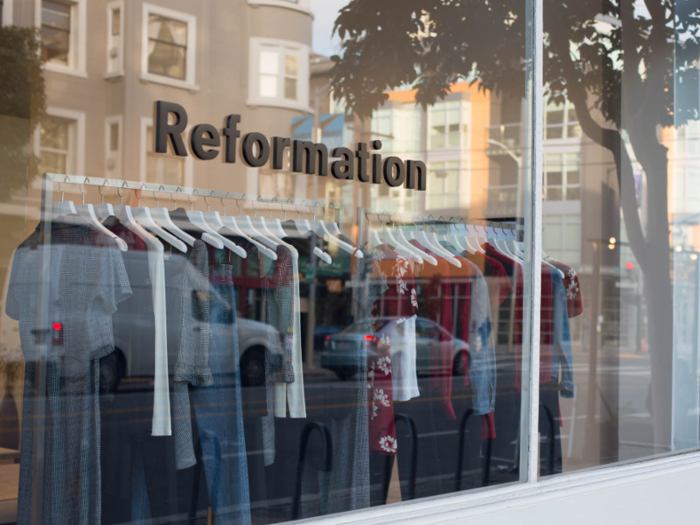
Additional locations are slated to open in Chicago and Toronto in the coming years. Reformation incorporates features like LED fixtures, recycled fabric insulation, and secondhand furniture into its stores.
Reformation offers public tours of its sustainable Los Angeles factory on the first Friday of every month. It also works with a variety of sustainable factory partners in the US, according to Talbot.

"We want to understand what our impact is as a brand and our products, everything from materials to manufacturing, packaging to garment care, and ultimately to what customers do with it when they're done wearing it," Talbot told Business Insider. "Within each of those life cycle stages, there's tremendous impact and there's also tremendous opportunity to make a difference."
Reformation's current goal is to recycle 100,000 garments in 2019. According to Talbot, when Reformation first started it exclusively made its clothing using deadstock material, an industry term for discarded or leftover fabrics.

The company has already recycled 66,119 garments in the first quarter of 2019 alone, a Reformation spokesperson told Business Insider.
Inside Reformation stores, shoppers can find signs dedicated to the company's sustainability efforts.
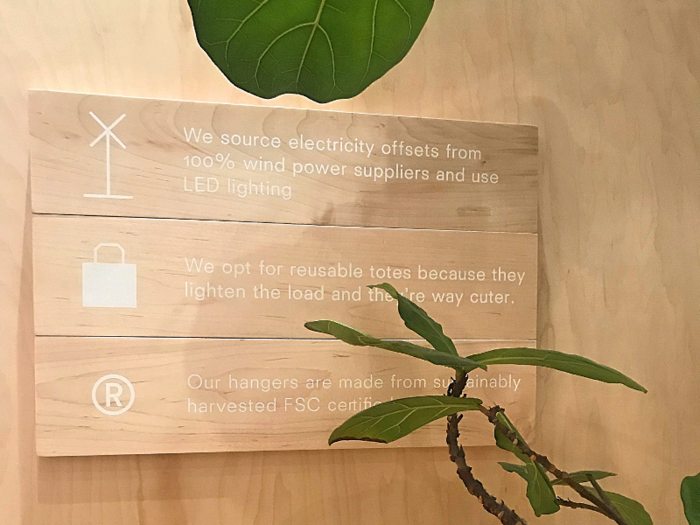
Pretty much everything in the store, from the hangers to adhesive tape, is sourced using bio-based, non-toxic adhesives. The hangers are made from recycled paper.
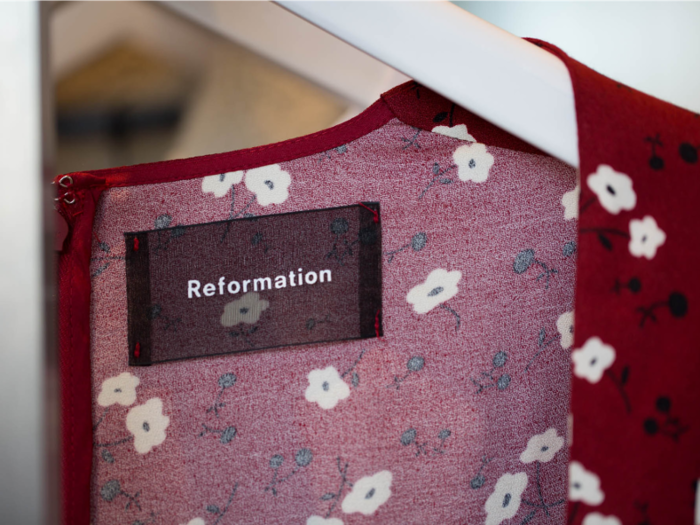
Reformation's packaging is made from 100% recycled paper products and compostable bio-based materials, so "it'll disintegrate and completely return to the Earth just like organic waste, leaving no toxic chemicals behind," Talbot said.

Its garment bags are made from 30% recycled plastic and are always reused when possible.
"It's the best we could find, but we want it to be better," the Reformation site states.
In February 2019, Reformation launched its "Carbon Is Cancelled" campaign. The program incentivizes shoppers with gift cards and discounts for showing proof of reducing their carbon footprints.

The campaign includes a partnership with Arcadia Power, allowing consumers to switch their electric bill to wind energy for a $100 credit to Reformation.
As part of the campaign, Reformation also added a section on its website where shoppers can purchase "climate credits."
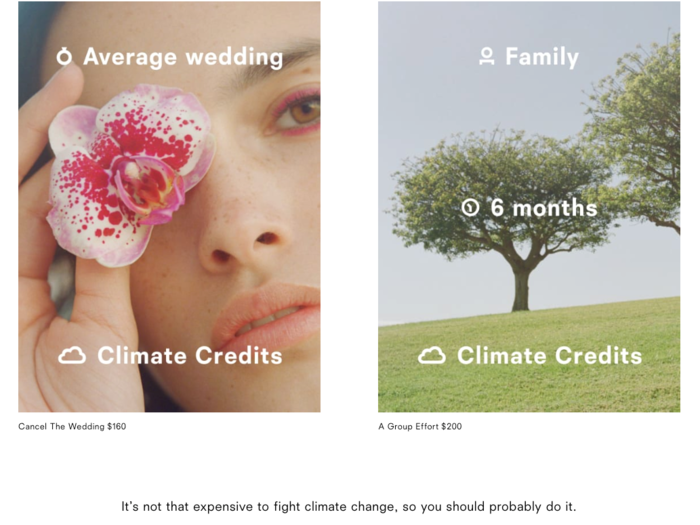
The climate credits, or carbon assets, fund NativeEnergy's efforts projects to reduce carbon emissions.
Moving into the next decade, Talbot said the company has been especially mindful to avoid any efforts that could be misconstrued as gimmicks.

"Unfortunately it does feel like sustainability and some of these fuzzy programs can be used more as a marketing initiative and it's something that we're really sensitive to," she said.
"Greenwashing is definitely a thing, and we're seeing it more and more in fashion. We encourage and challenge customers to scratch below the surface and make sure that a brand is really aligned with their values and what they're looking for."
Talbot said improving material sourcing remains one of Reformation's top priorities.
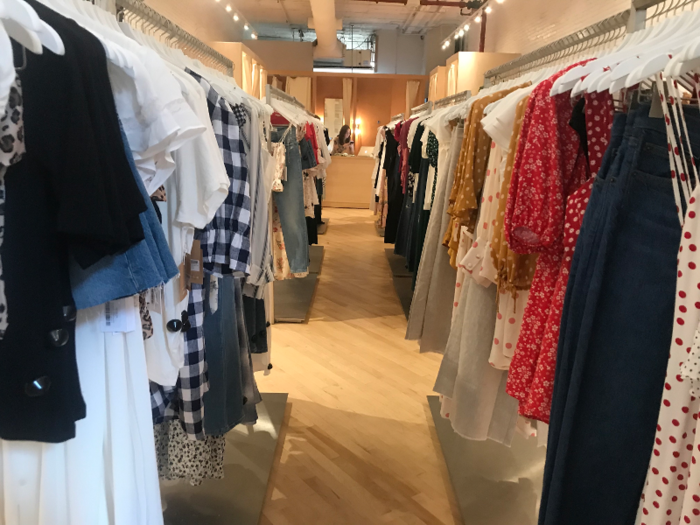
"Across the industry, we have a lot of work to do in materials and answering questions like, 'How do we develop lower impact fibers?' 'How do we make sure that our dyeing and finishing practices are really focused on both environmental and human health?'" Talbot said.
Sourcing will continue to be top of mind as Reformation continues to expand into new product areas like shoes, which hit stores in February 2019 ...

... as well as extended sizes, which Reformation debuted permanently in March, after first testing a limited-edition size-inclusive capsule collection in 2018.

Select products are now available in sizes 1X to 3X and 14 to 24.
Reformation has also strategically sought out like-minded partners such as outdoor clothing company Patagonia. Here, a small selection of Patagonia products are featured at the store in the Soho neighborhood of New York City.

"Patagonia is the Holy Grail, started-it-all sustainability guru ... Bow down," the Reformation site reads.
Moving forward, Talbot urged a "diversity of solutions" when it comes to industrywide sustainability. She said this includes rental programs, noting that Reformation currently lends occasion dresses to Rent the Runway.
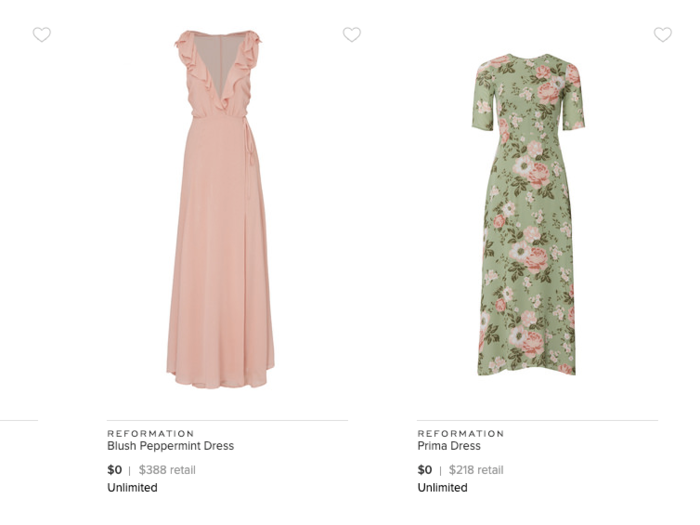
As the business continues to grow, Talbot said the brand's next challenge will be to ensure Reformation can scale its business model to maintain its status as a leader in sustainable fashion.
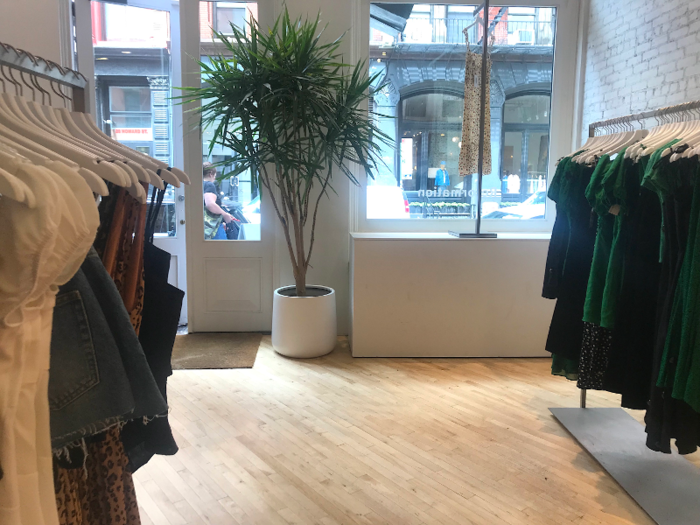
Reformation sources from vetted suppliers that adhere to specific standards on environmental impact and fair labor.
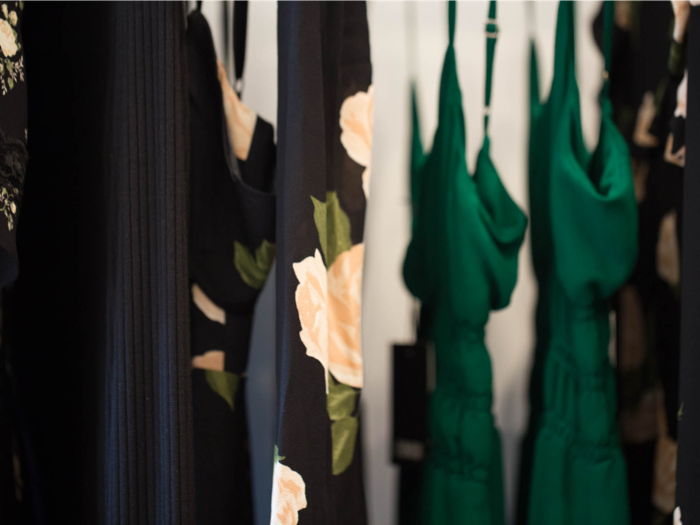
Though Reformation states a majority of its knit fabric is purchased in the US, the remaining is sourced from overseas.
"Our goal is to one day bring this know-how back — both internally and domestically," Talbot said.
Looking to the future, Talbot encourages fashion brands to work together to stop particularly egregious practices like burning excess inventory.
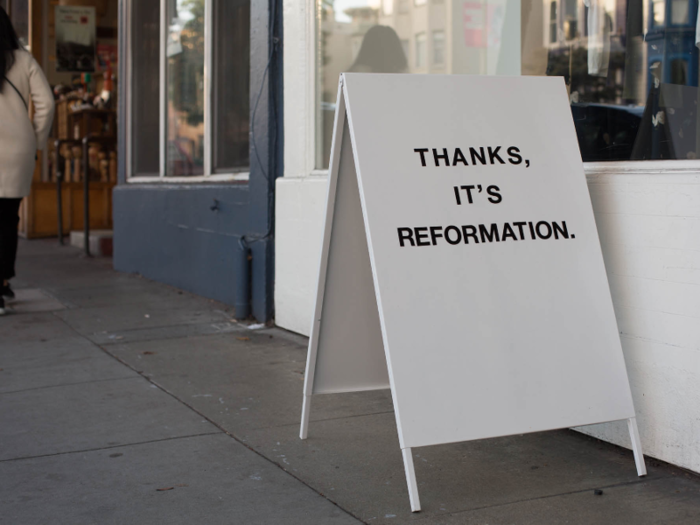
"There are opportunities to rethink and reimagine the business model to support some of these bigger industry issues," she said. "A lot of clothing that gets made never even makes it to a consumer, and it's either incinerated or scrapped."
As Reformation looks to lure new consumers, its next challenge will be in maintaining its reduced carbon footprint while it expands its physical retail locations, rolls out collaborations with wholesale partners like Nordstrom, moves into plus-size apparel, and launches new product categories like footwear.
Popular Right Now
Popular Keywords
Advertisement